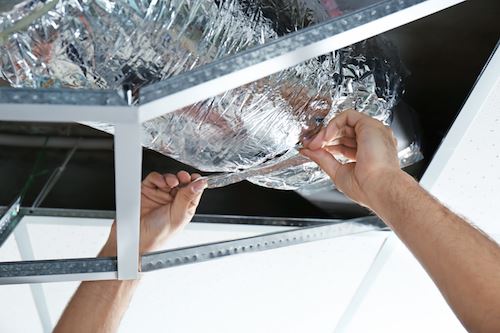As a homeowner, you’re “honey-do” list grows with every passing year. There are chores where you gain instant gratification: repainting a room, adding new flooring, installing closet organizers. And then there are chores where the rewards are more difficult to see.
HVAC falls into the latter category. As a homeowner, you know your furnace and air conditioner will only last so long. And when it’s time for replacement, it can be a major expense.
But what about the V in HVAC? Your ventilation system needs replacement too.
Your ductwork is a vital operating system that keeps your home safe, comfortable, and secure. Without the proper ductwork, heated air in the winter and cooled air in the summer couldn’t be delivered to each room. If your ductwork isn’t working as it should, it can impact air quality, which can make breathing difficult, unhealthy, or downright dangerous.
Should ductwork be replaced periodically? Should you add ductwork replacement to your “honey-do” list?
Let’s start with the basics. When your home was designed, the ductwork was installed to snake throughout your home. It was twisted and turned into place, ensuring every room has sufficient access to warm and cooled air. (This is assuming your ductwork was installed correctly. If it wasn’t, that starts an entirely different story.)
Many homes are outfitted with metal ducts pieced together to move throughout your home. Flex ducts are also available to move into tight places; to have more flexibility in how they flow. Of course, a good HVAC technician will tell you that short, straight ductwork is the best. But that isn’t always possible in the flow of our modern-day homes. And that’s where the trouble can begin.
Over the years, ductwork expands in the winter as it heats, contracts in the summer as it cools. It does this over and over again, keeping up with the demands of your home. If moisture settles onto the ductwork, it can allow rust or biological growth to form. All of that movement can cause seams to come apart, leaks to develop, and even holes to begin.
There are ways around this. Air sealing and insulating older ducts can stop potential problems before they occur.
But it all starts with knowing your system and maintaining it well before potential problems begin.
When was the last time you had your ductwork evaluated for potential problems? How old is your system? If you’ve never had an inspection looking at the quality of your ductwork, maybe now is the time.

